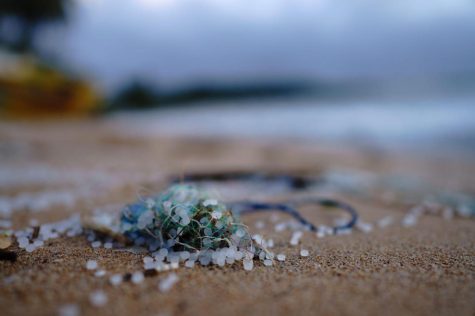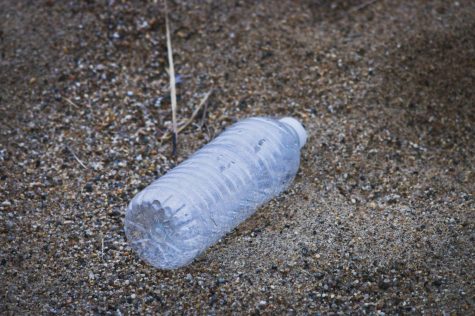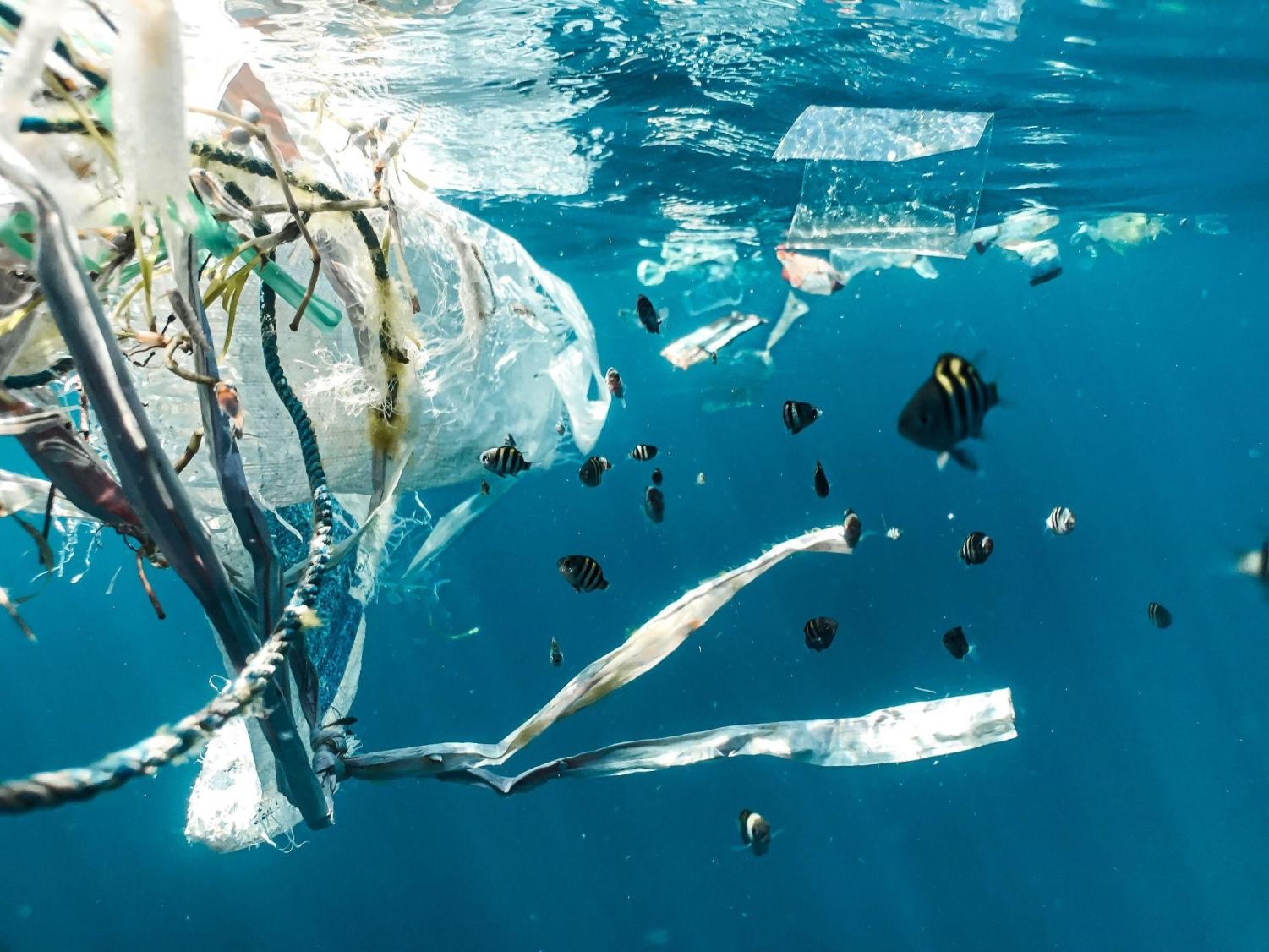A Plastic Problem: Plastic debris pose alarming threat to wildlife and humans
April 17, 2023
Marine debris has been impacting ocean life for an alarming amount of time, and these negative effects are not just affecting animals, but humans as well.
Each year, humans produce 300 million tons of plastic, with at least 14 million tons ending up in the ocean every year, according to the International Union for Conservation of Nature. For years, the talk about plastics effects on marine life has been a topic of discussion, but little has been done to help eradicate the issue.
Researchers are concerned about the amount of plastic in the ocean, with scientists estimating 5.25 trillion pieces of plastic debris in the ocean, according to National Geographic. With that much plastic in the ocean, it is now raising questions about whether anything coming out of the ocean is safe for human consumption.
Now more than ever, plastic pollution in the oceans is an urgent issue, as these large amounts of plastic not only impact marine life, but also food safety, human health and climate change.
As plastics break down due to sun exposure, weather, and other natural factors, they become microplastics, which are easily consumed by animals, who mistake plastic for prey. This mistake is a deadly one for marine life, whose bodies become overwhelmed by the amount of plastic digested, ultimately leading to their deaths.
It is estimated that plastic pollution kills 100,000 marine mammals every year, including turtles, seabirds, whales, fish and dolphins, whether it be due to ingestion or entanglement in plastic fishing gear according to the World Wildlife Federation. This number will most likely continue to grow, as it is projected that there will be more plastic in the ocean than fish by 2050.

“Anything really that comes out of the ocean, you cannot certify that as organic any longer,” Dr. Jennifer Lavers, a zoologist at the University of Tasmania, told ABC Science.
Fish consume tons of plastic a year, and the higher up the food chain you go, the more plastic contamination there is, reaching humans, especially those who eat seafood.
Plastic is proving to be deadly to even the ocean’s biggest mammals, whales. There have been many documented dead whales that have been found with several pounds of plastic in their stomachs.
“Whales absorb water from the food they eat, and there was no sign that any food had made it into its intestines for many days. Its body was destroying itself from the inside: Its stomach acid, unable to break down the plastic waste, had worn holes through its stomach lining instead,” according to a National Geographic article on what caused a young male whale to die.
If plastic debris can take down one of the biggest mammals on earth, there is cause for alarm as to what these debris can do to humans.
“Microplastics have been found in tap water, beer, and salt and are present in all samples collected in the world’s oceans, including the Arctic,” according to the International Union for Conservation of Nature.
Microplastics are being found in so many items used on a day-to-day basis, which can have severe impacts on humans as certain chemicals used to make plastic are dangerous to humans. The transmission of contaminated plastics from marine life to humans through consumption is a health hazard.
Last year, scientists published research that had findings that were shocking to them. They found plastic where it should not be in humans’ blood.

“The scientists analyzed blood samples from 22 anonymous donors, all healthy adults and found plastic particles in 17. Half the samples contained PET plastic, which is commonly used in drinks bottles, while a third contained polystyrene, used for packaging food and other products. A quarter of the blood samples contained polyethylene, from which plastic carrier bags are made,” according to The Guardian.
This research showed that plastic is being found in items used on an everyday basis and that it is entering the human bloodstream. Research is still ongoing as to the effects that plastic can have on humans, but scientists agree that the effects need to be known as plastic production continues to increase.
“More detailed research on how micro- and nano-plastics affect the structures and processes of the human body, and whether and how micro- and nano-plastics can transform cells and induce carcinogenesis is urgently needed, particularly in light of the exponential increase in plastic production and the ensuing accumulation of non-degradable MNPs, the problem is becoming more urgent with each day,” according to a review paper published by Springer.
Research shows that plastics are not just affecting marine life but also humans, and as new findings continue to come out, there are changes that humans can consider making to reduce the plastic pollution problem.
One of the easiest and most direct ways humans can help fight against plastic pollution is to reduce the use of single-use plastics, such as plastic bags, straws and cups. By carrying around reusable versions of those products and refusing single-use plastic, people would be making small changes that could have big positive impacts through continued use.
Other proactive measures to reduce the plastic problem are to recycle properly, get involved in beach cleanups and support organizations helping with plastic pollution.
Another way to help with plastic pollution is through word of mouth. Staying aware of the issue and talking to others can encourage others to make changes and be part of the solution to a global issue.
Plastic pollution is an issue affecting the world, but through conscious decisions, humans can prevent further damage to the ocean and marine life, as well as potential health hazards to themselves.
